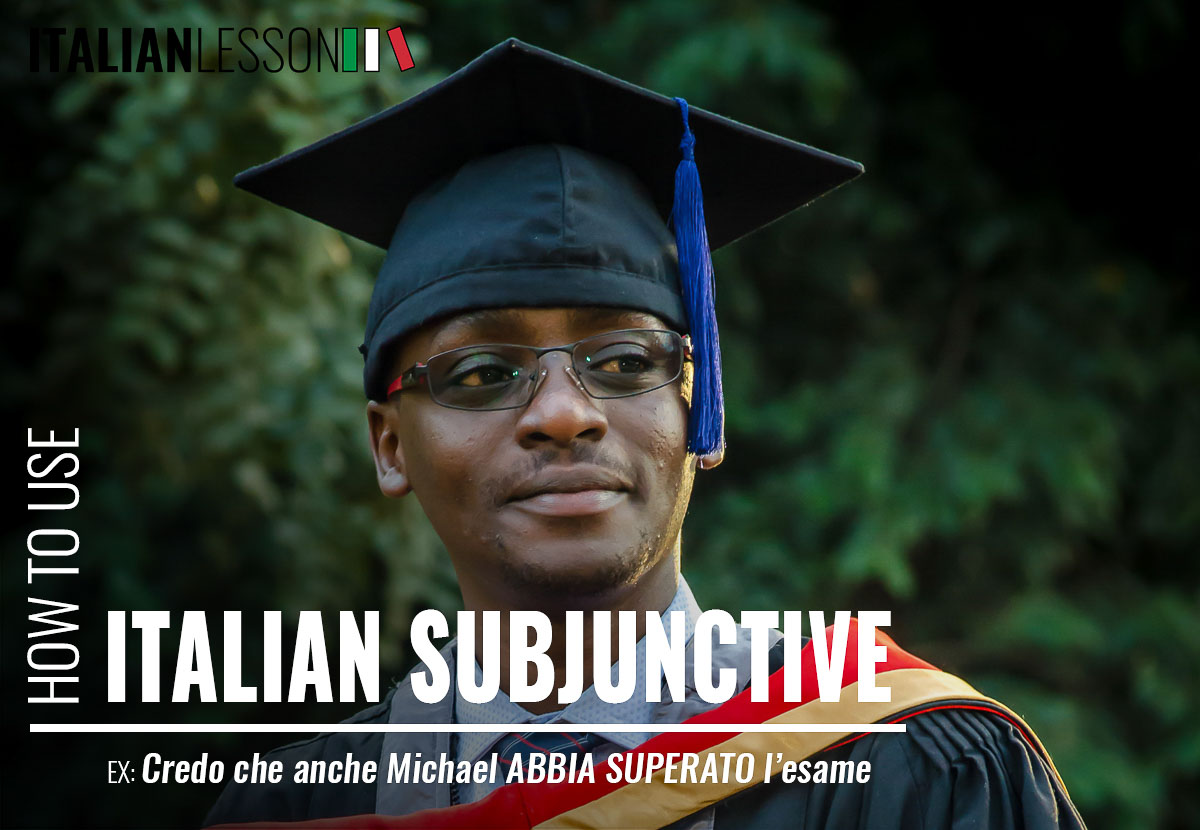
Did you think that Italian grammar had no other tenses? Wrong! The Italian subjunctive is another tense of the Italian verb, as well as a new word to add to your Italian vocabulary.
As usual, never forget to perfect your Italian pronunciation watching videos, tv series, movies and listening to songs, of course MADE IN ITALY!
The Italian subjunctiv
First of all, what does the Italian subjunctive express? It expresses doubt, uncertainty, unreality, moods and desires.
Alas, you have to learn another Italian conjugation!
As with any conjugation, even that of verbs in the subjunctive follows its own line.
The verb “to be” and the verb “to have” are totally irregular (and this does not surprise us at all).
Have you already read the article on the verb to be and to have?
https://italianlesson.it/how-to/italian-verbs/to-be-and-to-have-in-italian-how-to-use/
Let’s take a look at the Italian conjugation of the verb to be and to have in the subjunctive
| ESSERE (to be) | AVERE (to have) |
| Che io sia Che tu sia Che egli / ella – lui / lei sia Che noi siamo Che voi siate Che essi / esse – loro siano | Che io abbia Che tu abbia Che egli / ella – lui / lei abbia Che noi abbiamo Che voi abbiate Che essi / esse – loro abbiano |
As you may have noticed, the conjunction CHE placed in front of the verb is the “characteristic sign” of the subjunctive, in fact it also facilitates its recognition both for Italians and for non-Italian speakers.
The Italian subjunctive also has present and past tenses.
In the conjugation above, I’ve shown you the Italian present tense, now we see the conjugation of the same verbs in the present perfect tense
| ESSERE (to be) | AVERE (to have) |
| Che io sia stato/a Che tu sia stato/a Che egli / ella – lui / lei sia stato/a Che noi siamo stati/e Che voi siate stati/e Che essi / esse – loro siano stati/e | Che io abbia avuto Che tu abbia avuto Che egli / ella – lui / lei abbia avuto Che noi abbiamo avuto Che voi abbiate avuto Che essi / esse – loro abbiano avuto |
Before moving on to some examples, I would also like to show you the conjugation of other verbs in the subjunctive (present and present perfect):
| AMARE (to love) – Present | AMARE (to love) – Present Perfect |
| Che io ami Che tu ami Che egli / ella – lui / lei ama Che noi amiamo Che voi amiate Che essi / esse – loro amino | Che io abbia amato Che tu abbia amato Che egli / ella – lui / lei abbia amato Che noi abbiamo amato Che voi abbiate amato Che essi / esse – loro abbiano amato |
| DORMIRE (to sleep) – Present | DORMIRE (to sleep) – Present Perfect |
| Che io dorma Che tu dorma Che egli / ella – lui / lei dorma Che noi dormiamo Che voi dormiate Che essi / esse – loro dormano | Che io abbia dormito Che tu abbia dormito Che egli / ella – lui / lei abbia dormito Che noi abbiamo dormito Che voi abbiate dormito Che essi / esse – loro abbiano dormito |
| LEGGERE (to read) – Present | LEGGERE (to read) – Present Perfect |
| Che io legga Che tu legga Che egli / ella – lui / lei legga Che noi leggiamo Che voi leggiate Che essi / esse – loro leggano | Che io abbia letto Che tu abbia letto Che egli / ella – lui / lei abbia letto Che noi abbiamo letto Che voi abbiate letto Che essi / esse – loro abbiano letto |
Examples!
È meglio che tu non venga a scuola con quel raffreddore. / You’d better not come to school with a cold.
Credo che Luca abbia superato l’esame. / I think Luca passed the exam.
È bene per lui che la mamma non sia stata informata su quanto accaduto. / It’s good for him that his mother has not been informed about what happened.
I believe that after this roundup of new endings and conjugations to learn, you will be really busy!
Finally, remember: each topic can always be deepened but it is good to start with a few new inputs to which you can add, little by little, many new topics!
Here is a link to learn more:
https://it.wikipedia.org/wiki/Congiuntivo
See you soon!
